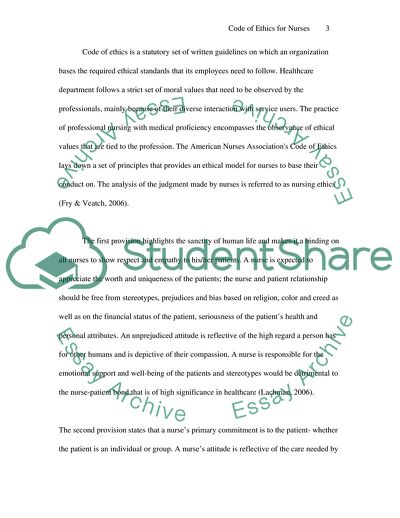Cite this document
(Code of Ethics for Nurses Essay Example | Topics and Well Written Essays - 1500 words, n.d.)
Code of Ethics for Nurses Essay Example | Topics and Well Written Essays - 1500 words. https://studentshare.org/health-sciences-medicine/1737120-code-of-ethics-for-nurses
Code of Ethics for Nurses Essay Example | Topics and Well Written Essays - 1500 words. https://studentshare.org/health-sciences-medicine/1737120-code-of-ethics-for-nurses
(Code of Ethics for Nurses Essay Example | Topics and Well Written Essays - 1500 Words)
Code of Ethics for Nurses Essay Example | Topics and Well Written Essays - 1500 Words. https://studentshare.org/health-sciences-medicine/1737120-code-of-ethics-for-nurses.
Code of Ethics for Nurses Essay Example | Topics and Well Written Essays - 1500 Words. https://studentshare.org/health-sciences-medicine/1737120-code-of-ethics-for-nurses.
“Code of Ethics for Nurses Essay Example | Topics and Well Written Essays - 1500 Words”. https://studentshare.org/health-sciences-medicine/1737120-code-of-ethics-for-nurses.


